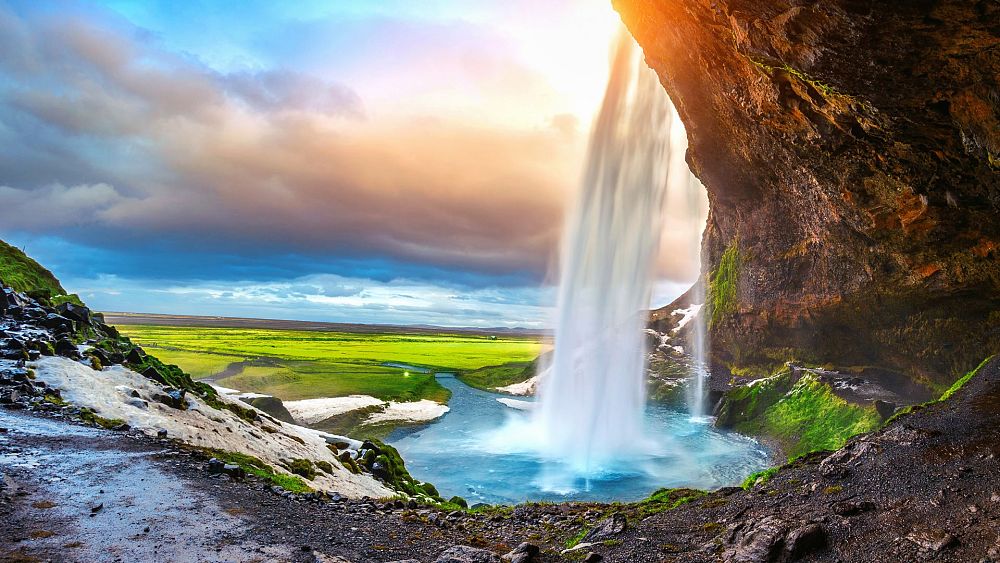L'Islanda sta adottando misure per proteggere la sua “natura incontaminata” dal sovraffollamento turistico con una nuova tariffa notturna. Il paese nordico ha assistito a un forte aumento dei turisti nell'ultimo decennio, con un numero di visitatori salito alle stelle di oltre il 400% tra il 2010 e il 2018, quando ha raggiunto la cifra sbalorditiva di 2,3 milioni. Questi numeri hanno continuato a salire dopo la pandemia, raggiungendo 1,7 milioni nel 2022.
In un'intervista rilasciata la scorsa settimana all'agenzia di stampa Bloomberg, il primo ministro islandese Katrín Jakobsdóttir ha affermato che una tassa sul turismo potrebbe contribuire a contrastare l'impatto che i visitatori hanno sul clima e sull'ambiente del Paese.
“La maggior parte dei nostri ospiti che vengono da noi visitano la natura selvaggia e ovviamente ciò crea pressione”, ha affermato.
Il Paese si è prefissato obiettivi climatici ambiziosi , tra cui il raggiungimento di zero emissioni nette entro il 2040.
Contenuti
ToggleA quanto ammonterà la tassa di soggiorno islandese?
Sebbene Jakobsdóttir non abbia specificato l'importo esatto della tassa cittadina islandese , ha detto a Bloomberg che “non sarebbe stata elevata, tanto per cominciare”.
Ha affermato che il programma verrà introdotto come una tassa comunale per le persone che soggiornano in Islanda .
Anche le aziende del settore turistico del Paese stanno migliorando la sostenibilità , ad esempio sfruttando l'economia circolare e utilizzando veicoli elettrici, ha aggiunto Jakobsdóttir.
“Sta accadendo, ma è una sfida”, ha ammesso.
In che modo la tassa di soggiorno aiuta l'ambiente?
I turisti gravano sulle infrastrutture, sui servizi pubblici e sulle strutture delle destinazioni che visitano. Introducendo una tassa di soggiorno , possono aiutare questi luoghi a far fronte ai carichi di turisti e scoraggiare i visitatori dal sovraffollamento. Può essere utilizzata per finanziare le infrastrutture di trasporto pubblico, invertire i danni causati dalla folla e supportare iniziative di sostenibilità.
L'Islanda non è l'unica destinazione a introdurre una tassa di soggiorno. Tali schemi sono già comuni in tutta Europa, con imposte in vigore nelle principali città come Parigi, Berlino, Amsterdam e Roma. La città britannica di Manchester ha annunciato che inizierà a far pagare una tariffa notturna ai visitatori all'inizio di quest'anno, mentre Santiago de Compostela in Spagna ha affermato di voler introdurre una tassa regionale quest'estate per combattere il sovraffollamento. Venezia, in Italia, ha da tempo una tassa di soggiorno e di recente ha fissato una data di lancio per l'estate 2024.
Immagine:Getty Images








Who knew a tourist tax could save the environment? Iceland, you rock! 🌍💪
Actually, its not as simple as that. While the tourist tax may generate revenue for environmental initiatives, it doesnt guarantee a significant positive impact. Its just one piece of the puzzle. So lets not jump to conclusions and give all the credit to Iceland.
Wow, I didnt know Iceland had a tourist tax! Thats a unique way to protect the environment.
Wow, I never thought a tourist tax could actually help the environment! Mind blown! 🤯
Iceland should focus on other solutions instead of burdening tourists with taxes.
Icelandic tourist tax? More like taxing my pockets for natures pristine beauty!
Well, if you cant afford to appreciate natures pristine beauty, maybe its best to stay home. Taxes help preserve and maintain these amazing sites for all to enjoy. So, instead of complaining, why not be grateful and contribute your fair share?
Tourist tax is just a money grab! Iceland should focus on other solutions to protect the environment.
Oh come on! The tourist tax is a step towards sustainable tourism. Its about time we take responsibility for the impact we have on the environment. If you dont want to contribute, stay home or find another destination. Simple as that.
Icelands tourist tax is just a sneaky way to make money off visitors! Whos with me?
I understand your frustration, but lets not jump to conclusions. The tourist tax in Iceland can actually contribute to the maintenance of its natural wonders and infrastructure. Its essential to strike a balance between benefiting from tourism and preserving the countrys beauty.